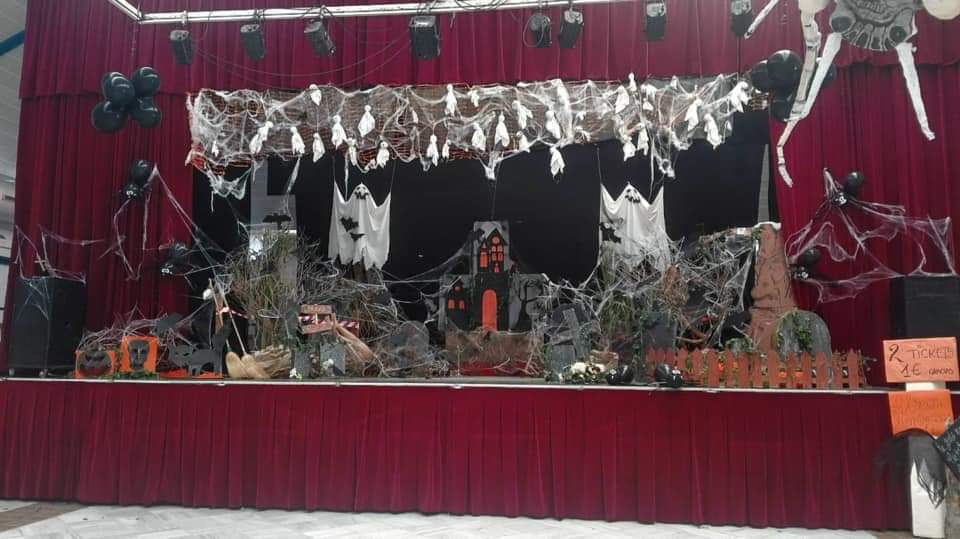Mojácar schoolchildren hold their own Spooky Party
On 31 October, Mojácar’s Centro de Usos Múltiples was the scary scene for the eagerly anticipated Halloween party especially for the young ones of the town, which is organized every year by the Bartolomé Flores School AMPA “El Jalí” Association in collaboration with the local Council.
More than 400 spooky decorations were dotted around the building, including a giant, menacing spider hanging from the ceiling as well as an abandoned village on the stage, all setting the scene for a very spine-chilling Halloween.
The event has also been given its own special local name, “Jaliween”, that students, parents and teachers came up with as an amusing take on its organizing Association, “El Jalí”.
For the frightfully fun party, eight areas were set up with different games with a craft table for creating and painting all kinds of monsters. Most in demand, however, was the “Tunnel of Terror”, which everyone couldn’t wait to go through, despite the unknown frights to come.
New for this year’s event were competitions for decorated pumpkins and costumes, with a special section for those costumes made with recycled materials.
The essential “Jaliween” buffet was full of home-made products made by the parents, which brought a temporary stop to the afternoon’s terrifying activities, with a chance to recharge batteries to continue with the party.
Each year sees a higher attendance from the schoolchildren and also from the parents who are keen to dress up and join the party, with a number of families coming along as a group disguised as their favourite monster.
As usual, the whole thing went off perfectly thanks to good planning, with 25 volunteers taking charge of the games. From a event that started off in a very small way with the past AMPA Association (which had members from other countries who traditionally celebrated Halloween), it has become one of the most important and highly attended events on the Mojácar school calendar, according to Débora del Moral, President of the AMPA, “El Jalí”.





